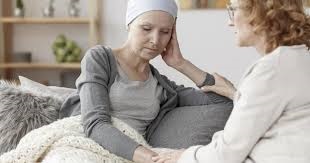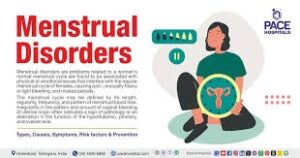COPING WITH OVARIAN CANCER

Ovarian cancer, a significant and often challenging diagnosis, impacts not only physical health but also emotional well-being and daily living. As patients navigate their journey through treatment and recovery, they face a multitude of challenges that extend beyond the medical realm. Understanding these challenges and knowing where to find support can make a substantial difference in managing the disease and improving quality of life. This comprehensive guide explores the emotional and psychological impact of ovarian cancer, physical challenges such as pain and fatigue, and the various support resources available to patients and their families.
EMOTIONAL AND PSCHOLOGICAL IMPACT OF AN OVARIAN CANCER DIAGNOSIS

Receiving a diagnosis of ovarian cancer can be overwhelming and life-altering. The emotional and psychological effects of such a diagnosis are profound and multifaceted.
1. Initial Shock and Anxiety:
The initial diagnosis often triggers a wave of emotions, including shock and anxiety. Patients may experience a sense of disbelief or fear about their future. This emotional turmoil is a natural response to a life-threatening diagnosis and can significantly impact mental health [1].
Transitioning from this initial shock, patients might face ongoing anxiety about treatment outcomes and the progression of the disease. The uncertainty about the future and the potential for recurrence can lead to persistent worry, which can affect overall well-being [2].
2. Depression and Emotional Distress:
Many patients with ovarian cancer experience depression and emotional distress. The mental strain of dealing with a serious illness, coupled with the physical symptoms and side effects of treatment, can lead to feelings of sadness and hopelessness. Studies have shown that women with ovarian cancer are at higher risk for depression compared to those with other types of cancer [3].
It is essential for patients to recognize these signs and seek professional help. Depression can affect treatment adherence and overall quality of life, making it crucial to address these issues proactively [4].
3. Impact on Relationships:
An ovarian cancer diagnosis can strain relationships with family and friends. Patients may find themselves withdrawing from loved ones due to the emotional burden or physical limitations. Conversely, family members and friends may struggle to cope with their own feelings of fear and helplessness [5].
Effective communication and support from loved ones are vital. Patients and their families should strive to maintain open lines of communication to navigate this challenging time together.
PHYSICAL CHALLENGES: PAIN, FATIGUE, AND CHANGES IN MENSTRUAL CYCLES

Ovarian cancer and its treatments bring about several physical challenges that can significantly impact daily life.
1. Pain Management
Pain is a common symptom experienced by ovarian cancer patients. It can arise from the cancer itself or as a side effect of treatments such as surgery or chemotherapy. Managing pain effectively is crucial for maintaining quality of life [6].
Healthcare providers typically offer a range of pain management strategies, including medications, physical therapy, and complementary therapies like acupuncture. It is essential for patients to communicate openly with their healthcare team about their pain levels and any changes in symptoms [7].
2. Fatigue
Fatigue is another prevalent issue among ovarian cancer patients. It can result from the cancer itself, the side effects of treatment, or the emotional toll of dealing with the illness. Fatigue can affect daily activities and diminish the overall quality of life [8].
Addressing fatigue involves a multi-pronged approach. Patients are encouraged to balance periods of rest with light physical activity, maintain a nutritious diet, and manage stress levels. Support from healthcare providers in creating a personalized plan to combat fatigue can be beneficial [9].
3. Changes in Menstrual Cycles
Ovarian cancer and its treatments often lead to changes in menstrual cycles. Surgery that involves the removal of ovaries can lead to early menopause, causing symptoms such as hot flashes, mood swings, and changes in sexual function [10].
Patients should discuss these changes with their healthcare team, who can offer solutions to manage menopausal symptoms, such as hormone replacement therapy or other supportive treatments.
SUPPORT RESOURCES FOR OVARIAN CANCER PATIENTS AND FAMILIES
Navigating life with ovarian cancer requires a robust support system. Fortunately, various resources are available to assist patients and their families in coping with the disease.
1. Support Groups:

Support groups provide a platform for patients to connect with others who are experiencing similar challenges. These groups can offer emotional support, practical advice, and a sense of community [11]. They can be found through hospitals, cancer centers, and online platforms.
Participating in a support group can help patients share their experiences and gain insights from others who have faced similar situations. It also provides a safe space to express emotions and seek encouragement [12].
2. Counselling and Therapy:

Professional counseling and therapy can be instrumental in helping patients cope with the emotional and psychological impact of ovarian cancer. Psychologists and counselors specializing in oncology can provide coping strategies, address issues related to anxiety and depression, and support patients in navigating their treatment journey [13].
Therapeutic approaches, such as cognitive-behavioral therapy (CBT), can be particularly effective in managing stress and improving emotional resilience [14].
3. Financial Assistance:

The financial burden of cancer treatment can be significant. Patients and families may face costs related to medical bills, medications, and other expenses. Financial assistance programs can help alleviate some of these burdens.
Organizations such as the American Cancer Society and CancerCare offer financial assistance for patients, including help with treatment-related expenses and access to financial counseling [15]. Additionally, some hospitals and cancer centers have social workers who can assist with finding local resources and navigating financial aid options.
4. Educational Resources:

Educational resources are available to help patients and their families understand ovarian cancer and its treatment. These resources include brochures, online materials, and educational seminars. Access to reliable information can empower patients to make informed decisions about their care and treatment [16].
Organizations such as the Ovarian Cancer Research Alliance (OCRA) provide educational materials and resources that can help patients and families better understand the disease and available treatment options [17].
CONCLUSION
Living with ovarian cancer presents a range of challenges, from emotional and psychological impacts to physical symptoms and changes in daily life. Addressing these challenges requires a comprehensive approach that includes effective pain management, strategies to combat fatigue, and support for managing changes in menstrual cycles.
Moreover, accessing support resources such as support groups, counseling, financial assistance, and educational materials is crucial for enhancing the quality of life and navigating the complexities of the disease. By leveraging these resources and maintaining open communication with healthcare providers, patients and their families can better manage the impact of ovarian cancer and find support throughout their journey.
REFERENCES:
- American Cancer Society. (2023). Understanding Ovarian Cancer: Emotional Impact. Retrieved from American Cancer Society
- National Cancer Institute. (2022). Psychological Impact of Ovarian Cancer. Retrieved from National Cancer Institute
- Cancer Research UK. (2023). Emotional Support for Women with Ovarian Cancer. Retrieved from Cancer Research UK
- Mayo Clinic. (2023). Depression and Ovarian Cancer: Managing Mental Health. Retrieved from Mayo Clinic
- Cleveland Clinic. (2023). Impact of Ovarian Cancer on Relationships. Retrieved from Cleveland Clinic
- American Society of Clinical Oncology. (2023). Pain Management in Ovarian Cancer. Retrieved from ASCO
- National Comprehensive Cancer Network. (2023). Managing Pain During Cancer Treatment. Retrieved from NCCN
- The Lancet Oncology. (2022). Fatigue in Ovarian Cancer Patients. Retrieved from The Lancet Oncology
- Society of Gynecologic Oncology. (2023). Strategies to Combat Cancer-Related Fatigue. Retrieved from SGO
- Mayo Clinic. (2023). Menstrual Changes and Ovarian Cancer Treatment. Retrieved from Mayo Clinic
- Cancer Support Community. (2023). Joining Support Groups for Ovarian Cancer. Retrieved from Cancer Support Community
- Ovarian Cancer Research Alliance. (2023). Benefits of Support Groups. Retrieved from OCRA
- American Psychological Association. (2023). Therapy and Counseling for Cancer Patients. Retrieved from APA
- National Institute of Mental Health. (2023). Cognitive Behavioral Therapy for Cancer Patients. Retrieved from NIMH
- American Cancer Society. (2023). Financial Assistance for Cancer Patients. Retrieved from American Cancer Society
- Ovarian Cancer Research Alliance. (2023). Educational Resources for Ovarian Cancer. Retrieved from OCRA
- CancerCare. (2023). Financial Assistance and Support Services. Retrieved from CancerCare